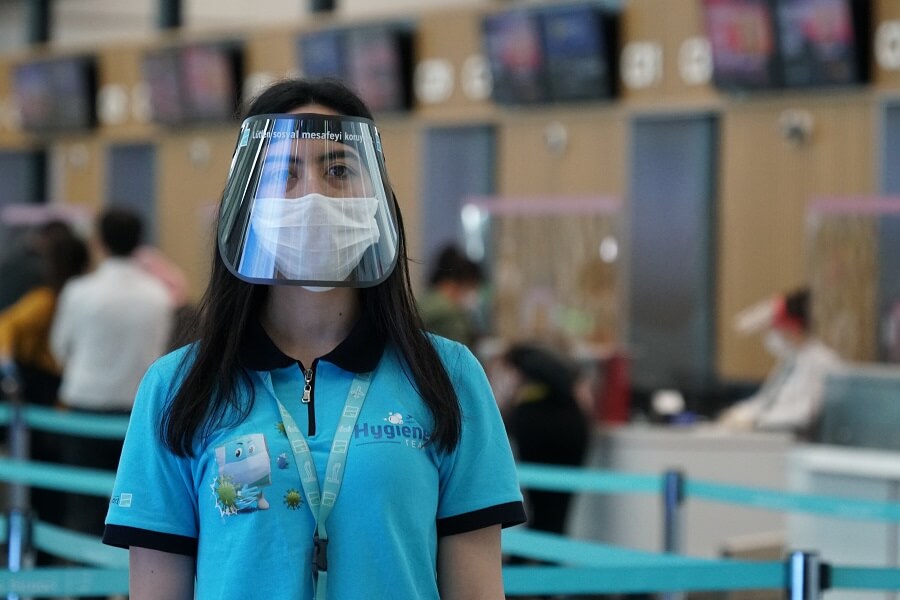Turkish NGO Donates 250 Ramadan Packages to Sisak Muslim Charity
ZAGREB, 26 April 2022 - The Turkish Cooperation and Coordination Agency TIKA has donated 250 humanitarian Ramadan packages for Sisak Islamic citizens.
TIKA vice-president Rahman Nurdun presented the packages on Tuesday to the president of Sisak's Merhamet charity, Šaban Kadrić. Nurdun commended TIKA's office in Zagreb and its leader Sedef Bulut for its prompt response in the wake of the 2020 earthquake and the wish to help residents of Sisak and Sisak-Moslavina County as much as possible.
"Turkey is one of the first countries to have provided assistance when Sisak and its environs were struck by the devastating earthquake, sending 200 housing containers and a large number of humanitarian packages to this area," Kadrić said, expressing gratitude to Nurdun.
"The diversity of our city enriches every aspect of our lives," Sisak Deputy Mayor Marko Krička said, noting the positive and long-lasting business cooperation and friendship between Sisak and TIKA.
For more, make sure to check out our dedicated lifestyle section.
Turkey Willing to Help Croatia in Reconstruction of Quake-Hit Areas
ZAGREB, 26 February, 2021 - Turkish Foreign Minister Mevlut Cavusoglu visited the city of Petrinja on Friday, saying that Turkey, which was one of the first countries to send relief aid to the quake-affected areas in Croatia, was willing to continue helping this region.
Croatian Foreign Minister Gordan Grlić Radman thanked Turkey for the rapid response and delivery of generous humanitarian assistance.
Immediately after the 29 December 6.2 strong quake in Sisak-Moslavina County, which claimed seven lives and caused extensive damage, Turkey sent 272 heaters and 480 tents to the affected region.
The Turkish minister recalled that after Izmir was hit by a 7.0 strong quake on 30 October last year, resulting in hundreds of casualties, Minister Grlić Radman had immediately contacted him to offer assistance.
With that dose of understanding and friendship, we then wanted to be the first to come to your aid, Cavusoglu said. He conveyed Ankara's readiness to help Croatia in future reconstruction projects in this area.
The Turkish official added that his country lies in a seismically active region and has gained experience in dealing with the aftermath of such disasters.
In August 1999, a 7.6 strong quake hit the city of Izmit and killed 17,000 people. In 2011, an earthquake left more than 500 people killed in the city of Van.
We shared this destiny with you in a sad and sorrowful way, Cavusogly said.
Ankara has sent 10 experts from the Disaster and Emergency Management Authority (AFAD) to Croatia.
Furthermore, 200 prefab housing containers have been delivered from Turkey to Croatia, said Minister Tomo Medved, who heads the task force dealing with the aftermath of the 29 December quake.
Medved expressed gratitude and said he was sure that Croatia and Turkey would continue fostering their friendship.
In the Šešerin container settlement, Cavusoglu handed keys to the donated containers.
Grlić Radman described the donation as a strong form of solidarity.
Cavusoglu is the first Turkish foreign minister to visit Croatia after 12 years.
Turkish assistance also included the donation of 500 blankets, hygienic articles and food as well financial assistance from several Turkish companies.
Croatian FM: Turkey Important Partner, Dialogue Necessary
ZAGREB, July 13, 2020 - Turkey is an important partner with which it is necessary to talk so as to turn around the negative trend in its relations with the EU, Croatia's Foreign and European Affairs Minister Gordan Grlic Radman said on Monday.
Grlic Radman participated at the first physical meeting of EU foreign ministers since the outbreak of the coronavirus pandemic.
The main topic was a comprehensive and strategic discussion of the complex relations between the EU and Turkey whose activities in the eastern Mediterranean are causing concern.
There was also talk of Turkey's intention to reconvert Hagia Sophia back to a mosque after the Turkish high court stripped the Byzantine site of its museum status.
"EU member countries strongly advocate that Turkey's President Recep Tayyip Erdogan change that decision. We hope that that will happen," Grlic Radman said.
He added that Turkey is a candidate country for NATO membership with which is it necessary to hold dialogue, however, it is also necessary to warn it of its violation of an embargo on arms to Libya and some other situations that deteriorate our relations.
"Dialogue is necessary so that this negative trend can be turned around and become positive and constructive because Turkey is an important partner and geopolitical fact," the minister said.
Grlic Radman said that he asked the foreign affairs council to discuss the Western Balkans at the first available opportunity.
"Croatia does not want for all of that be over with the Zagreb summit and that it be brought down to just the dialogue between Kosovo and Serbia. We as the direct neighbour to those countries, want other topics to be on the agenda of the Council of the EU. That contributes to a better understanding in member countries of the processes that are developing in the Western Balkans when it comes to the issues of democracy, media freedom, combatting corruption and the rule of law. It is certainly good to have permanent dialogue," said Grlic Radman.
Safe Tourism Certificate Program: How Turkey is Handling Tourism, Reports Croatian Correspondent
June 29, 2020 - How are other tourism countries preparing for the season in the corona era? We are delighted to welcome Turkey-based correspondent Maja Kuzmanovic to TCN, starting with a really interesting look at the Turkish Safe Tourism Certificate Program.
Is safe tourism possible during a global pandemic? This question is bothering Mediterranean countries who are trying to save at least part of the 2020 summer season.
In the case of Croatia, which opened to tourism as early as mid-May, many details of the COVID-19 virus protocol (hereinafter the coronavirus) more than a month after the opening of the borders are still not clearly defined. While Croatian tourist cities are losing their nerves and renters are in a dilemma whether to open their apartments to foreign guests, Turkey has introduced a “Safe Tourism Certification Program”. The introduction of this program began in early May, two months before the country opened to tourism.
The certificate of safe tourism is a sort of HACCP for the prevention of the spread of coronavirus, it is based on 132 health and hygiene criteria and it also includes employee education.
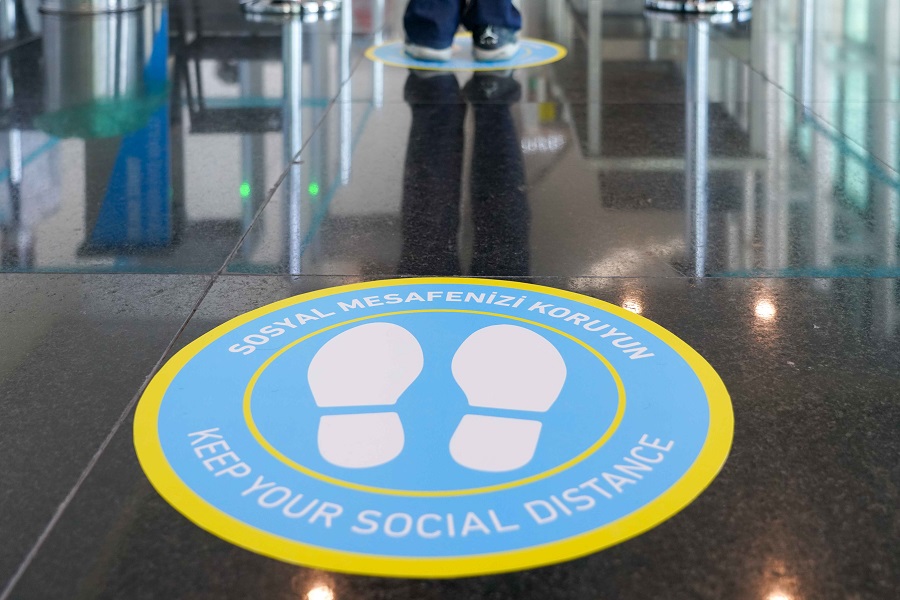
The program embraces all facilities that provide accommodation and transportation, as well as archeological parks, museums and entertainment venues.
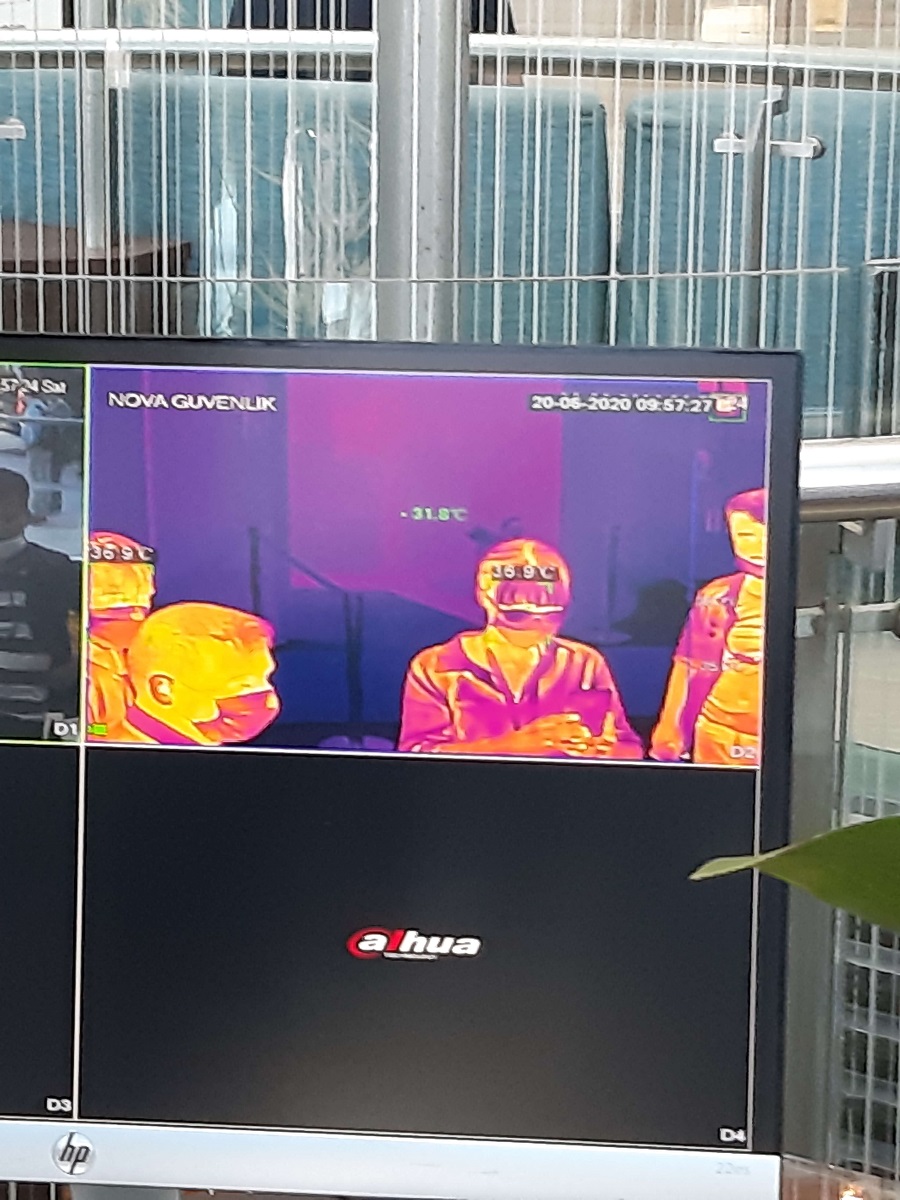
Thus, a special part of the program refers to airports, airlines, highways, tourist facilities and occasional transport companies that provide transfer and transport services for tourist tours. Passengers encounter the new protocol upon arrival at the airport where their temperature is measured by thermal cameras, and if it is higher than 37.8 C or there are some other symptoms, they undergo a free of charge coronavirus test.
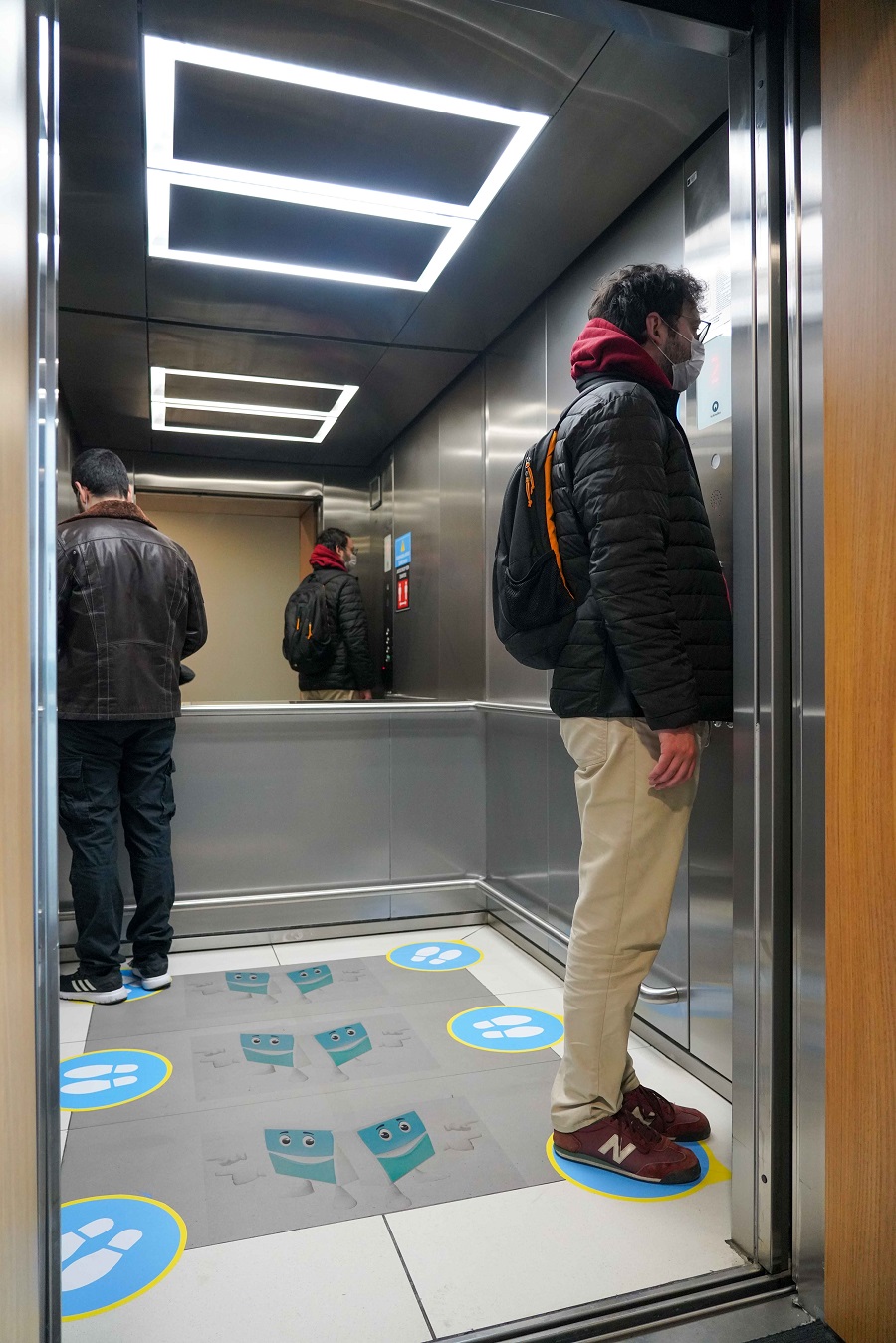
If the test result is negative, passengers continue their journey. In case of a positive result, guests are sent to the hospital where, depending on the severity of the disease, they stay for treatment or are accommodated in a hotel. All hotels are required to provide a special section of the facility for guests infected with coronavirus and for those in quarantine. They are also required to allow sick guests to stay at the hotel's expense until complete recovery.
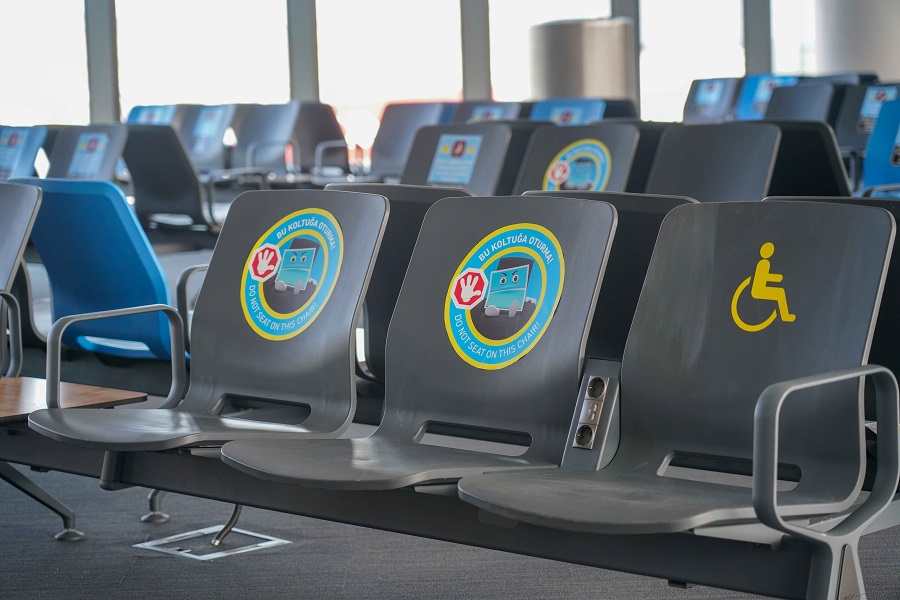
Treatment of foreign guests is free of charge and the costs are covered by the state of Turkey. From July 1st, Turkey is introducing the “COVID-19 tourist protection insurance” which will be available for purchase online, at travel agencies and airports. There will be three packages at the price of € 15, € 19 and € 23, which cover treatment costs in the amount of € 3,000, € 5,000 and € 7,000. According to Turkish statistics, the cost of treating a seriously ill patient with coronavirus averages € 4,000.
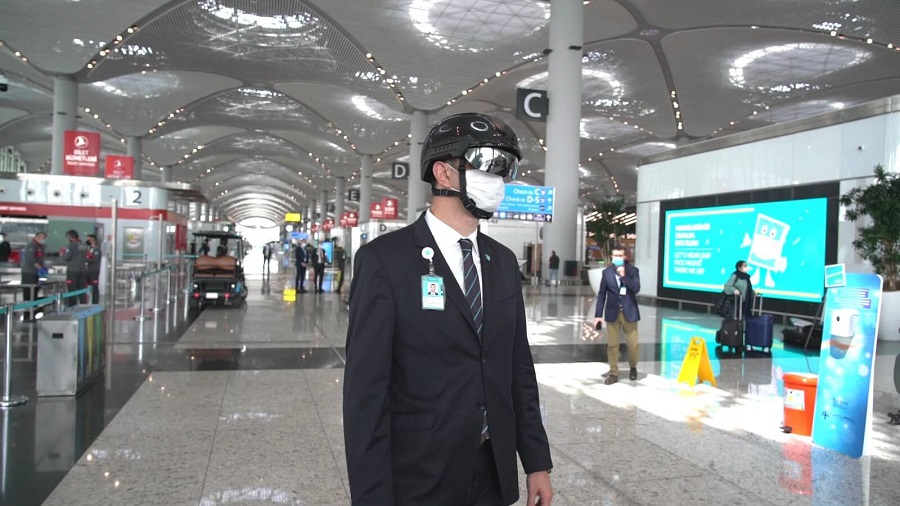
In order to reduce the number of visitors, only those presenting an airline ticket and with a mask on their face can enter the airport. Special attention is paid to the physical distance of 1.5 m and the signs with the direction of movement are placed everywhere, both on the escalators and in the elevators. Also, sitting in the waiting rooms, except for the disabled, is forbidden. Disinfectant kiosks can be found at every turn, and passengers are constantly warned about the rules. Upon entering the aircraft, packages with personal protective equipment (PPE) are distributed, and similar is done in the hotels too. Thermal cameras are also located at the hotel’s entrances while guests on arrival fill out a form with questions about their health and movement in the last 14 days.

Self-service in the hotel restaurants is no longer available, and the food counters and servers are separated by strips from the guests. Masks are mandatory, and even beach guards wear them. Rooms must be disinfected daily and 12 hours must elapse between the departure and arrival of guests. Tourist buses are filled with 50% of the capacity, ie every other seat, and before entering the vehicle the body temperature is measured, as well as at the entrance to the archeological parks, shopping malls and pedestrian zones.
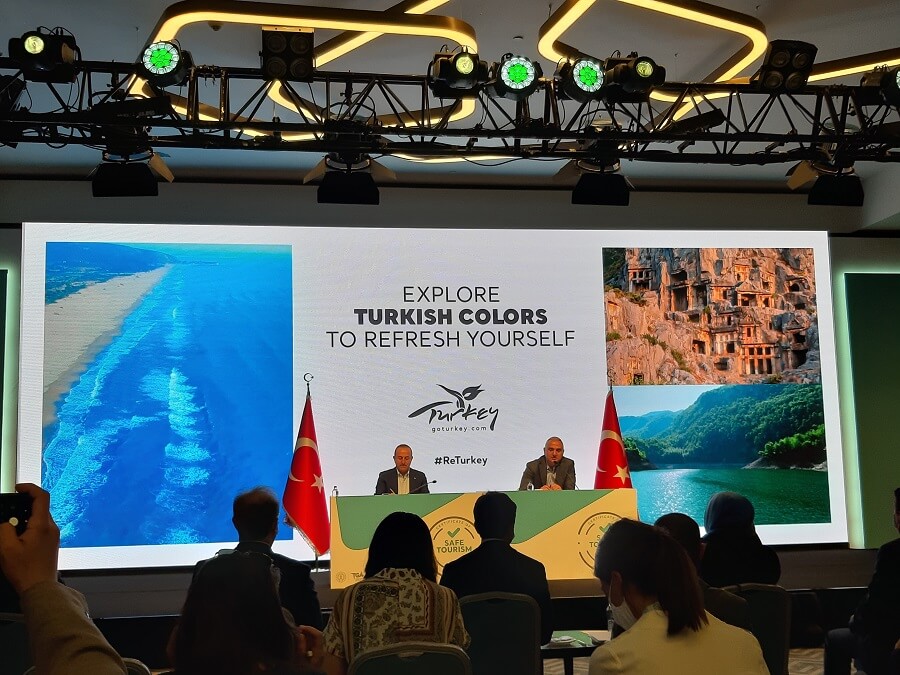
The body temperature of the author of this article was also measured upon returning from the toilet during the break of the concert which was held on June 20 on the occasion of the promotion of the certificate of safe tourism in the ancient theater in Aspendos, near Antalya. - "This is the worst crisis that has ever hit tourism, and we must all adapt to the new normal." The program we implement requires significant investments, but offers maximum possible protection. In the process of normalization of life, one of our key points is tourism. “ - Turkish Minister of Culture and Tourism Mehmet Nuri Ersoy stated at the press conference in Antalya.
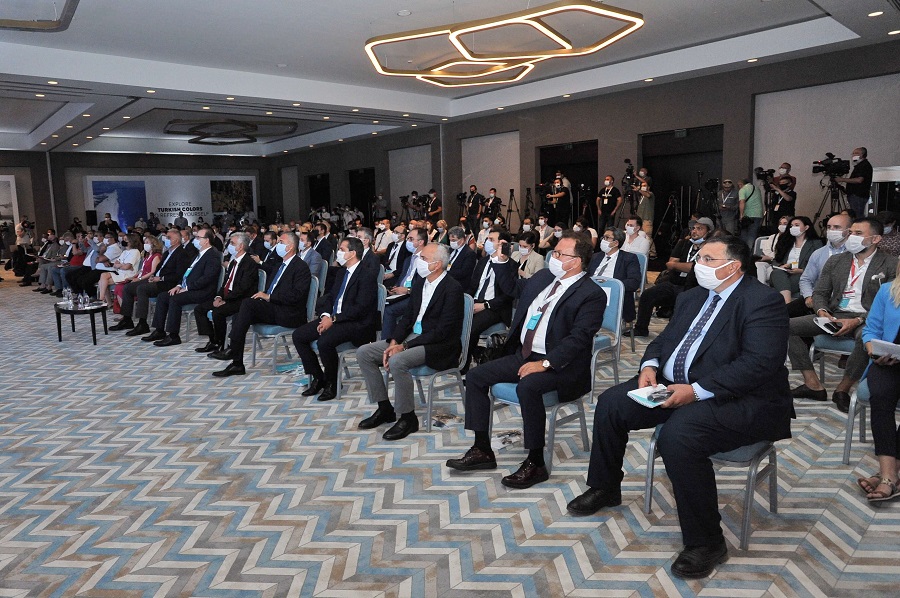
The first official case of coronavirus in Turkey was registered on March 11 2020, schools and universities were closed immediately, and within the next two weeks normal life stopped. Traffic between cities was cut off, borders were closed and air traffic was stopped. A partial lockdown was introduced with the purpose of saving human lives and partly the economy, exempting only the working population from these measures. For citizens aged 65 and over and for the chronically ill - the most vulnerable part of the population, as well as for those under the age of 20, the curfew was imposed until mid-June. Weekends and holidays curfews for the entire population were regularly imposed in all major cities until June 1, so the Turkish people spent even the Ramadan Eid holidays in their homes.
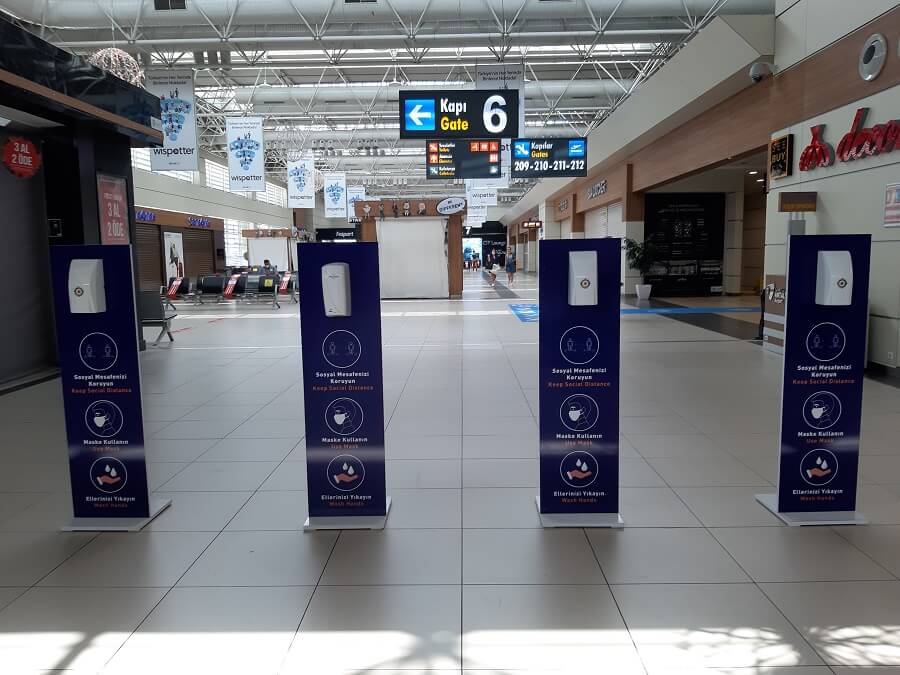
Turkey, with 197,239 cases, is the 14th country in the world in terms of confirmed cases of coronavirus, of which 85 percent have been cured, with 5097 deaths (statistics for 28.06.2020). Wearing masks is mandatory indoors and on public transport, and in the cities of Istanbul, Ankara and Bursa outdoors as well. The fines for not wearing masks and violating the quarantine and curfews go up to € 700. While the city of Istanbul, with the population of 15.5 million, accounts for about 60% of coronavirus cases, a significantly smaller number of patients have been reported in tourist centers in southern Turkey.
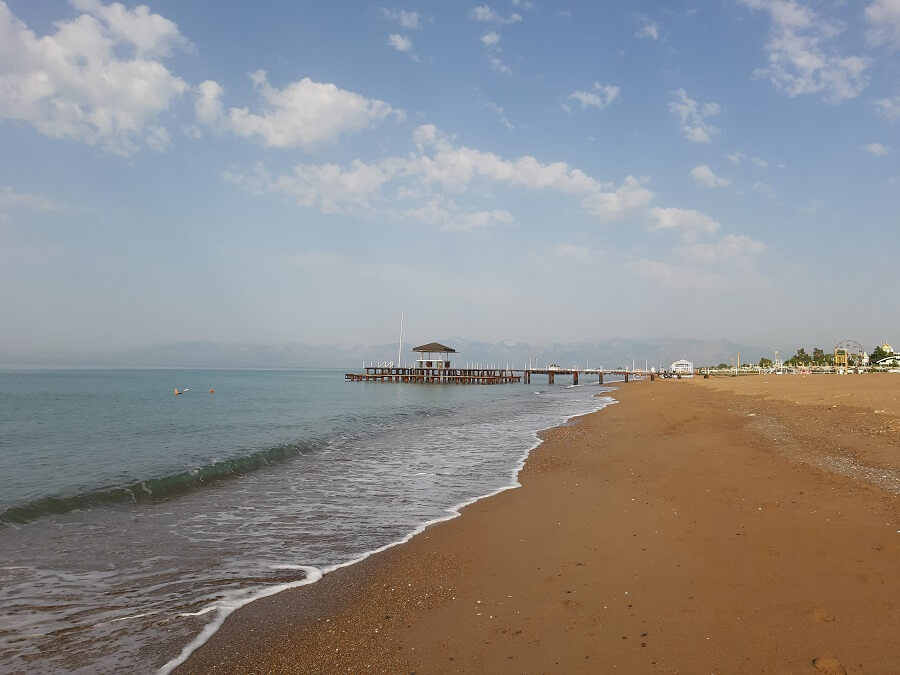
Thus, in Antalya (population 2.4 million), which accounts for 48% of Turkey's tourism revenue, 500 citizens have fallen ill since the beginning of the pandemic, 14 of them with a fatal outcome.
As far as hospitals are concerned, Turkey has the highest number of intensive care beds per 100,000 inhabitants in the world (40), and hospital occupancy at the peak of the pandemic in mid-April, when the daily number of infected reached 6,000, did not exceed 80%. In April Turkey started domestic production of respirators, the mass production of surgical masks, as well as alcohol. For months, the most sought-after product on the market has been cologne, which was widely used in restaurants and households even before the arrival of the coronavirus.
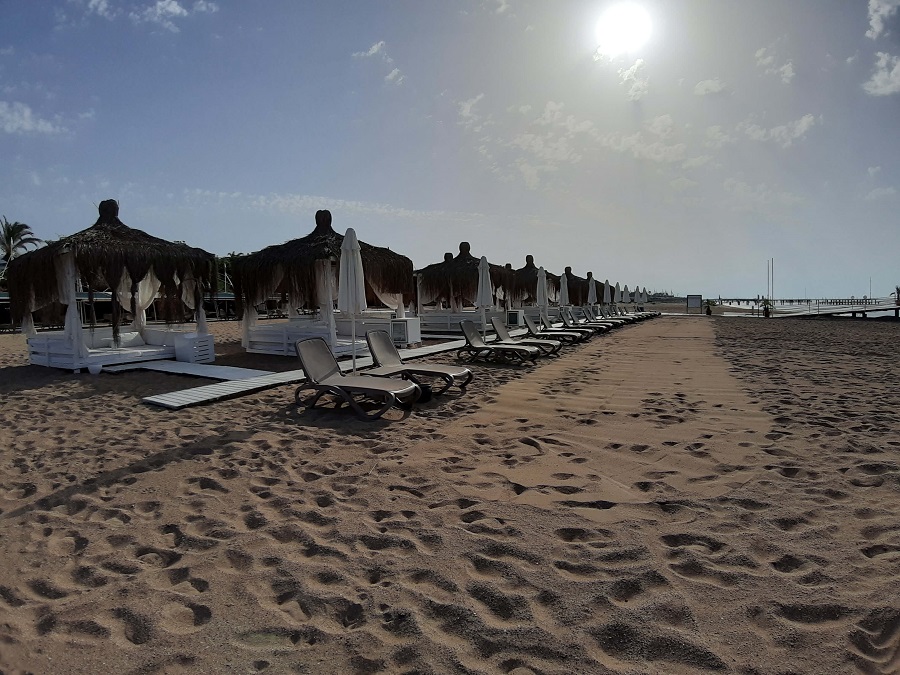
The re-establishment of international air traffic began in mid-June, and flights to most EU countries, as well as to Croatia, will start on July 1st after which the arrival of the higher number of foreign tourists is expected. Until July, all the major airports in Turkey will have test stations and the passengers will be able to take the test for the price of € 15 before the return flights. Turkey as a non-EU country, already has an agreement with Germany regarding quarantine upon return to the home country. Passengers should be tested up to 48 hours prior to departure, and if the test result is negative, a 14-day quarantine is not required. Germany has the largest Turkish diaspora, and Germans are the second most frequent guests after the Russians.
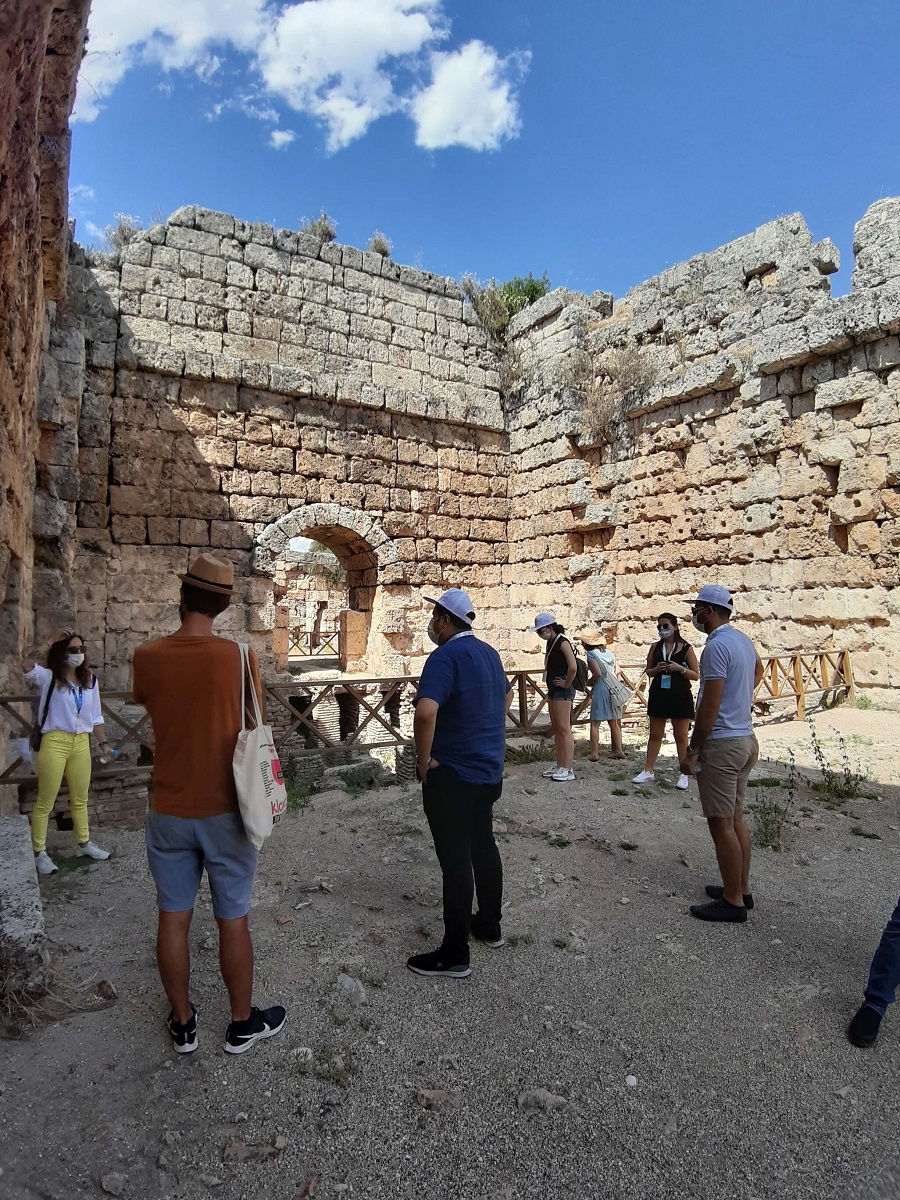
Turkey is the sixth most visited country in the world in terms of annual number of visitors with 51.8 million in 2019, out of which 86 percent were foreign (source UNWTO). The economic contribution of tourism in the GDP is 12 percent, while in Croatia the share of tourism in the GDP is 25 percent. In the first five months of 2020, there was a 66 percent decline in foreign arrivals, ie 8.5 million arrivals. It is difficult to predict to what extent this number can be compensated in the second half of the year.
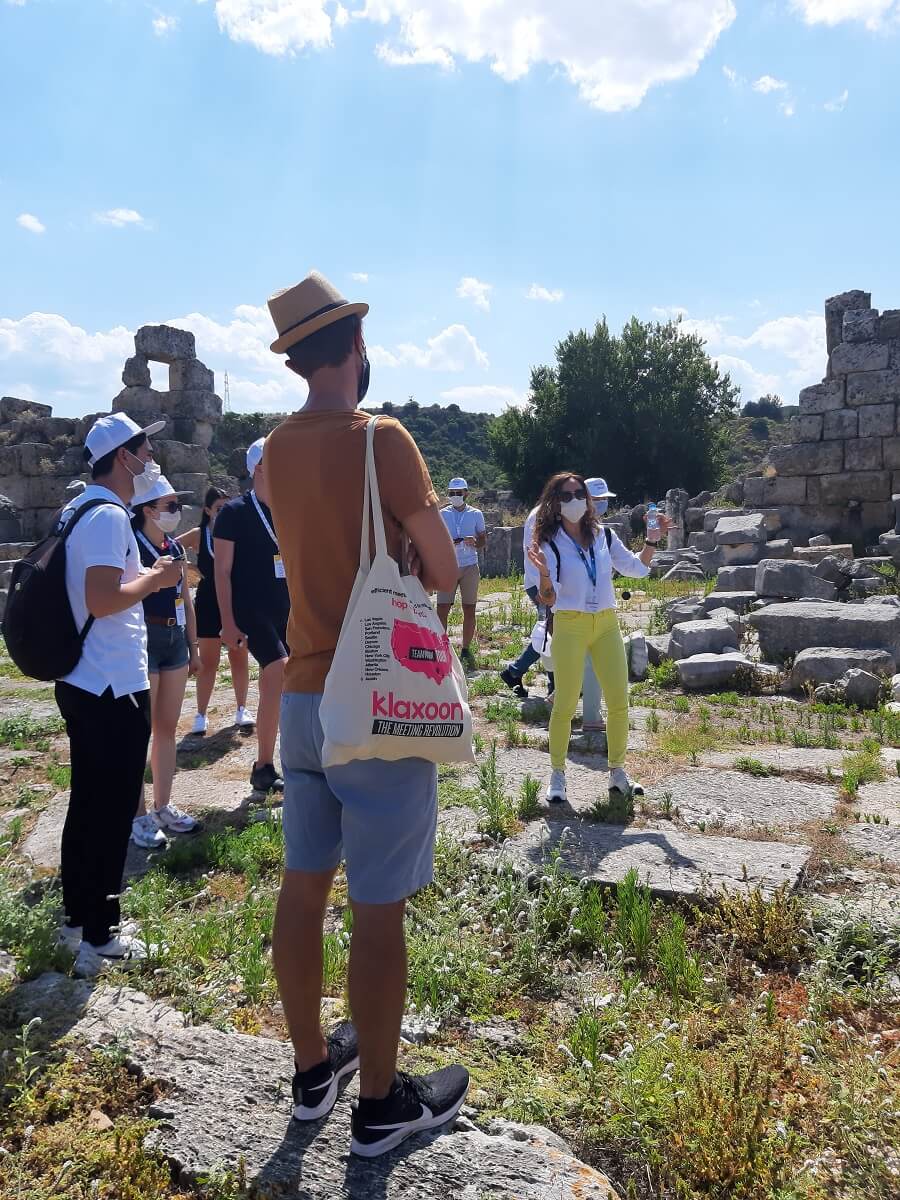
Time will tell whether safe tourism at the time of the pandemic is feasible in practice, but Turks did everything to minimize the risk. And the most unpredictable variable in the whole story of safe tourism is the human factor.
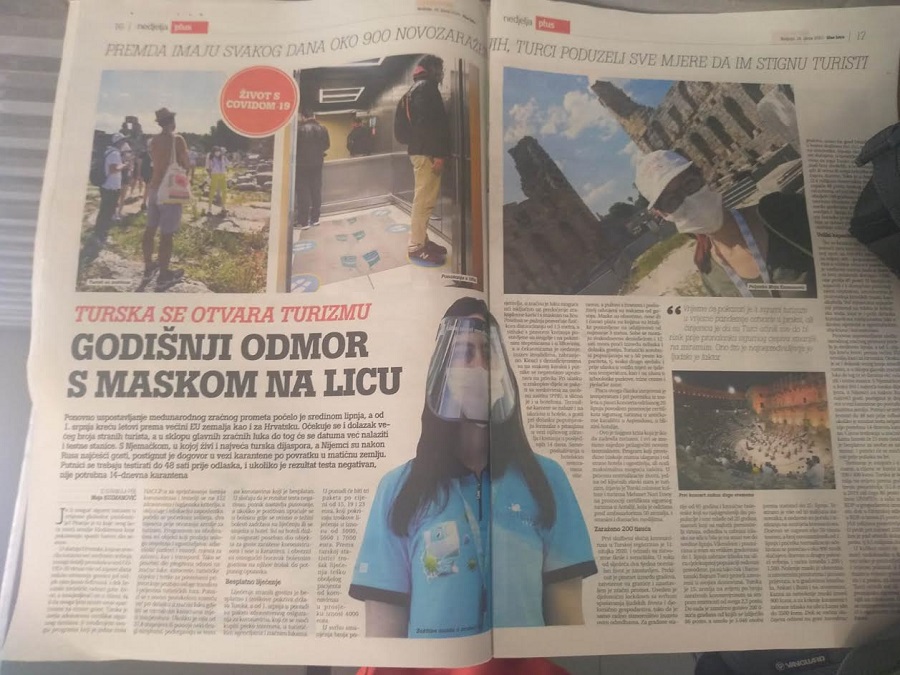
This article first appeared in Croatian in the print edition of Glas Istre.
Turkey Advises Migrants on Routes to France, Germany: Avoid Croatia
March 6, 2020 - Turkey has released a map of route options for migrants hoping to reach France and Germany, and Croatia has been bypassed. Greek media outlets recently reported Turkey's geographical map with "routes" running from Turkey into Western Europe.
They claim that it is further evidence that Ankara has officially participated in the developing crisis by encouraging migrants and refugees to enter the EU illegally. The map, along with instructions in Arabic, was published by the official Turkish state television TRT Arabic and posted on their Twitter page and Facebook page on February 28, 2020.
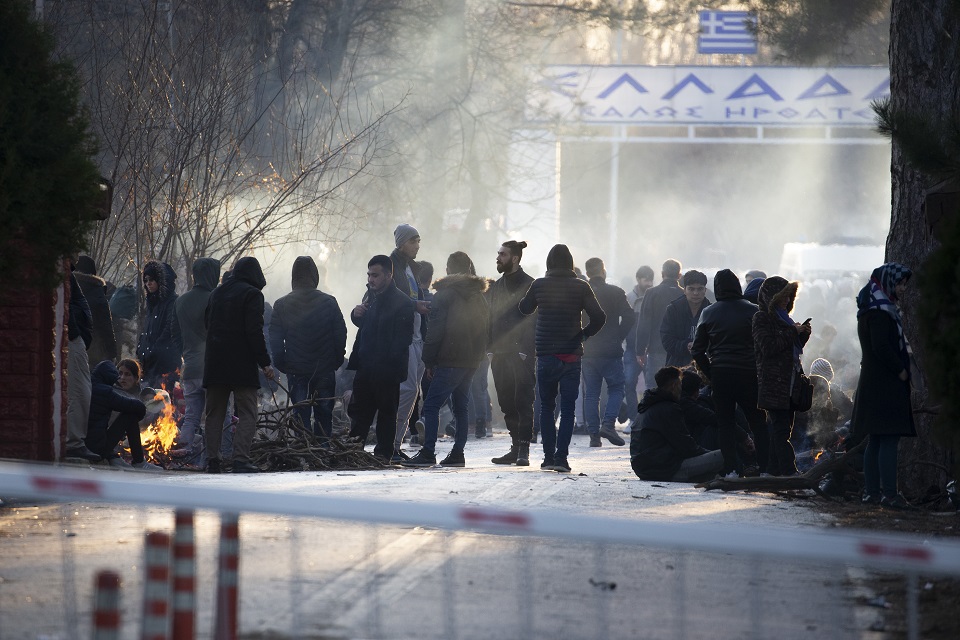
Turkey Migrant Map Shows Five Routes to France, Germany
According to the map, migrants and refugees are directed to five route options through Turkey to five "entry points" to Greece: four on its islands, and one via the land border, across the Evros river, where the Greek army was recently deployed, and where conflicts across the border line are now almost continuous.
Upon arrival in Greece, migrants and refugees would, according to the map, cross through Italy on their way to France, which is shown as a major destination.
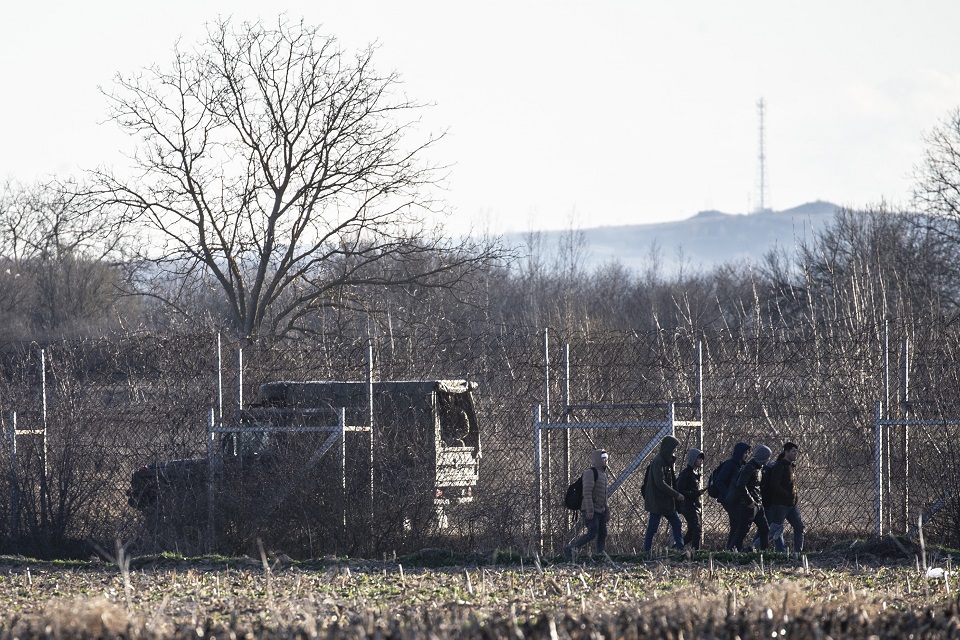
TRT Arabic Map Bypasses All Former Yugoslav Countries
The other route from Turkey heads Northwest, bypassing all the countries of the former Yugoslavia, then passes through Bulgaria, Romania, Hungary, Austria, where the road branches in two directions: one towards Germany and on towards France, writes Dnevnik.
Turkish President Recep Tayyip Erdogan has threatened European Union countries with a new migrant crisis if they do not support his efforts in the Syrian civil war and provide Turkey with additional aid for housing migrants.
EU governments have refused to increase financial aid to Recep Tayyip Erdogan’s Turkey under the terms of their €6 billion migration deal, insisting Europe would not bow to threats from Ankara over opening its border with Greece, according to the Financial Times on March 6, 2020.
Following an emergency meeting in Zagreb on Friday, EU27 foreign ministers held firm on their criticism of Mr Erdogan for using migrants for “political purposes” after a build-up of refugees on the Greek-Turkish border. Mr Erdogan had vowed to open the country’s frontier with Europe over the weekend, sparking the prospect of a new refugee crisis.
Germany has been pushing for more financial support for Mr Erdogan to stave off any repeat of Europe’s 2015 migration crisis. Before the events of this week, member states had discussed the possibility of freeing up about €1 billion from the EU’s current budget for the Turkey facility. But ministers on Friday said they would not ramp up aid in response to pressures on the Greek border.
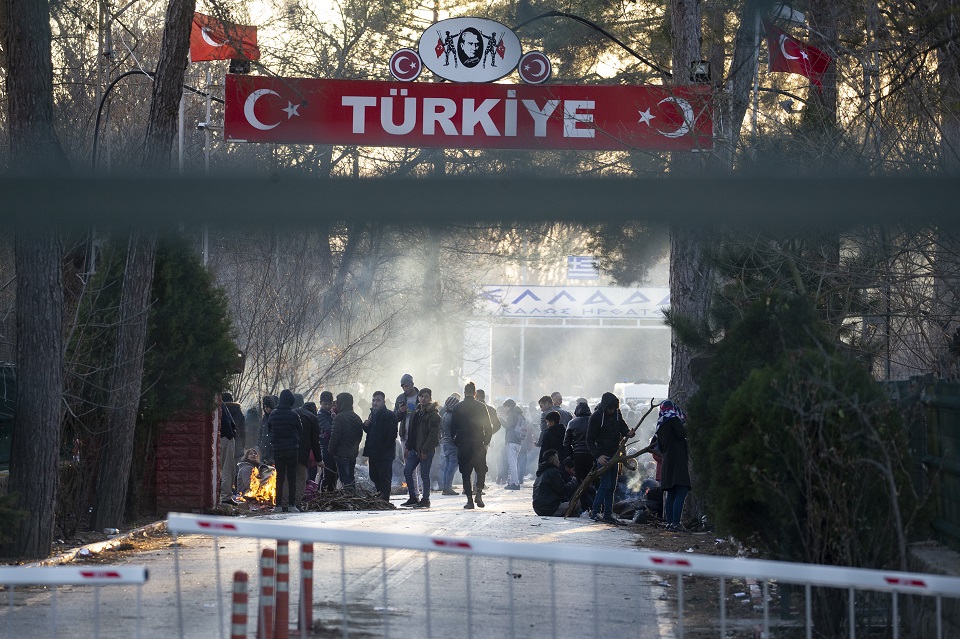
Turkey Demands More EU Aid to House Migrants
Turkey has demanded more financial help to integrate the nearly four million refugees in the country. The EU has been paying out cash to projects to help the integration process since 2016 but key programmes are due to run out of money soon. Ankara has complained that the cash disbursements are too slow and accused the EU of failing to live up to its promises to liberalise visas for Turks as agreed under the deal.
European governments have disagreed over how to engage with Turkey after Mr. Erdogan’s comment prompted thousands of refugees to head to the border with Greece, sparking violent clashes. Athens has pushed for a tough condemnation of Mr. Erdogan’s actions but has met resistance from Berlin and The Hague, which want to keep diplomatic ties open with Ankara.
EU diplomats monitoring the border developments said the flow of migrants towards Greece had stopped in recent days and Mr Erdogan was back in compliance with the terms of the 2016 deal.
Follow this page and our Politics page for Total Croatia News updates on the migrant crisis in Croatia.
Croatia Migrant Crisis: Interior Minister Will Not Send Army to Border
March 2, 2020 - Davor Božinović, the Interior Minister of Croatia, emphasised that there is no need to send the army to the border, because Croatia deals with illegal migrants daily. He added that Croatia’s border protection system maintains communication with colleagues from other countries on every level. And they are working together to pursue a diplomatic solution.
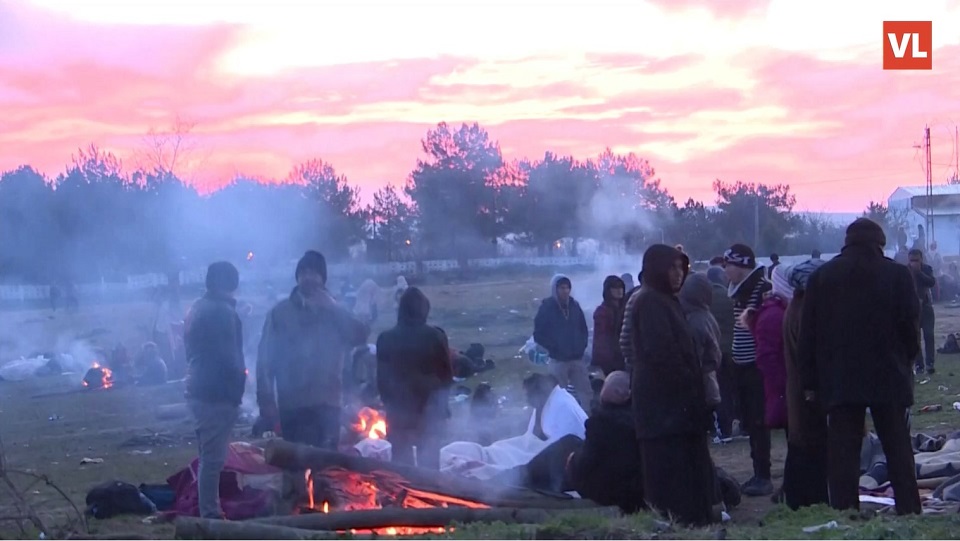
Croatia Eastern Border: No Increase in Illegal Migration
“There has been no reported increase in illegal migration on Croatia's eastern borders. The police are doing their job and the situation is no different than yesterday or the day before. Croatia has been dealing with illegal migration every day for almost three years now. That is why, even with these new circumstances, we can confirm that our border protection system fully operational and doing its job,” Interior Minister Davor Božinović said today. He noted that presently there is no need to send the army to the Croatian border, even though that remains a legal possibility, according to Marina Borovac/Večernji List on March 2, 2020.
“We will see how the situation on the Greek and Bulgarian borders develops, in relation to Turkey’s recent actions (release of migrants from their country). We are in close contact with our colleagues (from other countries) on every level. One direction we are going is certainly the diplomatic route. After all, the President of the European Council, the President of the European Commission and the President of the European Parliament will visit the Greek border tomorrow to see the situation there. At the same time, talks are underway with the Turkish leadership, which is part of the diplomatic role. The aim is to return to the EU-Turkey agreement of 2016,” Božinović added, and is confident that diplomacy would be the goal.
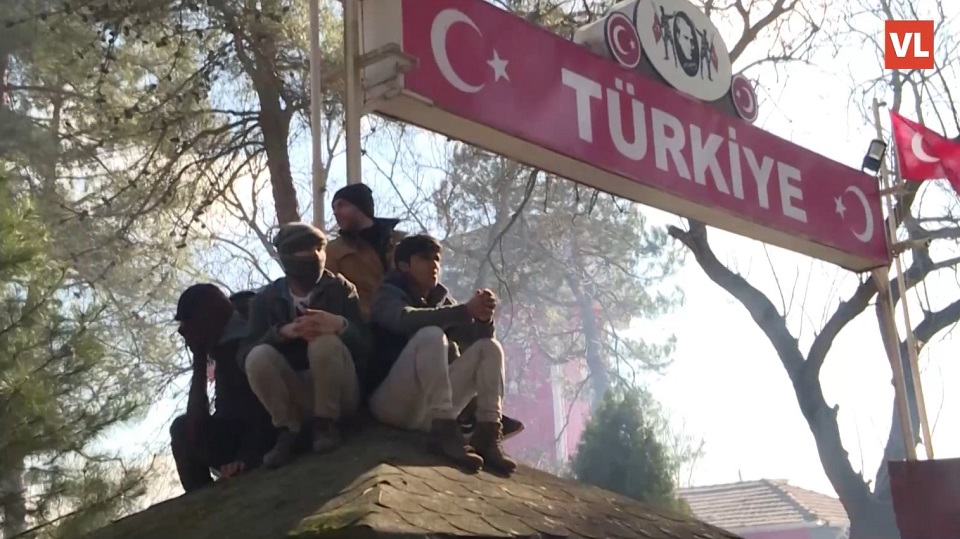
Croatia Will Discuss Border Assistance to Greece, Bulgaria
Božinović announced an upcoming meeting of European interior ministers to discuss what assistance can be sent to Greece and Bulgaria. He says both countries are committed to deterring illegal migration, which is in the wake of the new European Commission's policy regarding the protection of the EU's external borders. Božinović recalled that there was a migrant wave in 2015 because Greece had allowed migrants to pass through their territory.
“This is the only way to prevent the 2015 and 2016 scenario from happening again. Today, not only Greece, but every country has made their objectives very clear regarding the protection of their borders along the so-called Western Balkan route,” the interior minister concluded.
Croatia will emphasize its plight with protecting Europe's borders, but reiterates that the issue of the migrant crisis can only be resolved through (the agreement upon) a common European policy.
Follow our Politics page and this page to keep up-to-date on the migrant crisis along the Western Balkan route in Croatia.
As Croatia Raises Prices, Nautical Tourism Turns to Greece and Turkey
As Morski writes on the 19th of April, 2019, Croatia's nautical tourism season has already started, beginning about a month ago and lasts the longest of all, for about eight months in total. What can be expected this season and whether or not the Greeks have taken away part of what would have been Croatian guests due to the Greek state's measures, are just a couple of the issues that Robert Pende, an assistant in the Croatian Ministry of Tourism, Roko Vuletić, the president of HUP's nautical sector and the Croatian Chamber of Commerce's Sean Lisjak discussed on HTV's "Good morning, Croatia" show.
Robert Pende stated the nautical season has just begun, and so far we have room to be satisfied and we can expect the season to be on the same level as last year.
Vuletić said that according to field information, the data isn't so great.
"We're the leaders in the world in one segment of nautical tourism, and that's renting a boat without a crew. We're receiving information from our colleagues who have charter agencies that some existing reservations have been canceled due to Croatia's price increases, which has been a big trend in recent years, although charter agencies raised their prices the least, given the growth of offers and competition,'' said Vuletić.
He added that guests are increasingly looking for package deals and that there are less and less classic nautical guests - they're wanting to have a whole package, from airline transfers, accommodation, gastronomic offers, and all of that has increased in price, including in marinas.
''In combination with the announced recession, people are becoming more cautious about what they're spending, they want to go to new destinations, and Greece and Turkey are growing rapidly,'' he said.
Lisjak said he was not afraid about people cancelling their reservations, he stated that Croatia's nautical tourism sector is a vigorous activity and in the last fifteen years Croatia has had continuity. He added that Croatia needs to be careful because new markets are opening their doors that have recently been avoided for security and various other reasons. He added that believes that if Croatia manages to accomplish last year's results despite all of that, then it can be satisfied.
He said that Croatia made 860 billion kuna from tourism last year and added that a way should be found to allow existing investors to invest in marinas.
He noted that a certain drop in transit has been recorded with the aforementioned Croatian price increases, adding that Croatia does have to be careful with its pricing policy and that the country needs to focus on being as competitive as possible.
Vuletić believes that boosting advertising activities on new markets needs to be done. Austria, Germany, Slovenia, Slovakia and the Czech Republic are Croatia's traditional markets, and the country should turn to the growing American or Scandinavian market, reports HRT.
Make sure to follow our dedicated lifestyle page for much more. Interested in learning more about sailing in Croatia? Give Total Croatia Sailing a follow.
World Bank Foresees Croatian Economic Growth in Next Three Years
Economic growth in Europe and Central Asia slowed down to 3.1 percent in 2018, and it is predicted to fall to 2.1 percent in 2019 due to a slower rate of global growth and uncertain prospects.
As Poslovni Dnevnik writes on the 5th of April, 2019, the Croatian economy continued to grow at a rate of 2.6 percent in 2018, while in the forthcoming period from 2019-2021 moderate growth is expected at an average rate of 2.5 percent, according to the World Bank's most recent report on the latest economic trends in Europe and Central Asia (N1).
The countries of the region recorded different rates of growth. Growth at the regional level has greatly contributed to positive developments in the GDP data of Russia as the largest economy in the region, just as the accelerated growth did in Albania, Hungary, Poland, and Serbia. On the other hand, Turkey has experienced a significant slowdown in growth due to the pressure of the financial market and currency issues. Namely, in 2019, it is expected to grow by 1.0 percent, which is a significant drop compared to 7.4 percent back in 2017.
"Europe and Central Asia are vulnerable to global uncertainty and are faced with serious long-term challenges such as aging populations, a decline in productivity, a decline in investment, and climate change. It is good that there are a whole range of possible solutions available when public policies are geared towards mitigating these challenges,'' stated Cyril Muller, Vice President of the World Bank for Europe and Central Asia.
"Countries should work harder to attract investment, enhance their participation in global value chains, and ensure that more people are able to access financial services such as bank accounts and electronic payments."
Regional growth is expected to recover its power in 2020 and 2021, as it is predicted that the gradual recovery of Turkey will serve as a counterweight to the restrained activity in Central Europe as a whole. However, the long-term challenges of the region are still substantial.
Make sure to follow our dedicated business and politics pages for much more.
WBAF Croatia is First Croatian Project for Experienced Turkish Investor
WBAF Croatia will focus on facilitating access to finance for start-ups, start-ups, MSPs and fast-growing companies, and will start with international training programs for investors. Baybar Altuntaşa, a successful Turkish entrepreneur and investor is set to kickstart his very first Croatian project.
As Bernard Ivezic/Poslovni Dnevnik writes on the 19th of January, 2019, on Monday, January the 21st, in Zabok's Bračak castle, the first office of the World Investment Forum of Business Angels (WBAF) opens in the European Union. As we reported recently, the office will provide education for startups and business angels as it has been available in London. This includes elite tourism and the support of Krapina-Zagorje County. Such unusual news is otherwise an everyday thing for Baybar Altuntaşa. This prosperous Turkish entrepreneur, angel investor and entrepreneur promoter has a number of international success stories behind him.
Over in Turkey, he is also celebrated as a TV star in their version of the entrepreneurial reality show Shark Tank. He is the president of the Turkish Business Angels Network (TBAA), vice president of the European Business Angels Network (EBAN) and founder and president of WBAF. He has been coming to Croatia fairly regularly since visiting for the very first time back in 2015, and Poslovni Dnevnik talked with Altuntaş about his debut Croatian project.
You developed the QBAC program based on the WBAF program on the London Stock Exchange. You have been an advisor for this LSE program. What exactly did this program offer to LSE investors?
First of all, the WBAF wants to help increase financial engagement across the globe. We also want to help investors make good and early returns on their investment, as this generates resources for more investment in new startups. And thirdly, the WBAF wants to speed up the conversion of public money into smart money, to encourage innovation. We've designed a course to provide business angels with knowledge and tools to help them achieve their own goals as investors, which in return will contribute to achieving the WBAF's goals for the entrepreneurial ecosystem.
How will the Croatian version of QBAC, called QBAC Bootcamp Croatia, differ from those over in London?
In Croatia, we've strengthened the bootcamp with panel discussions, round tables and debates. It will be comprehensive and will involve a cultural interaction with the Croatian investment ecosystem. This will also include visits to technoparks, student meetings, and fundraising for startups.
How did you come to the assessment that for QBAC Bootcamp Croatia there is a market of 500,000 business angels, ie, potential customers?
I believe that Croatia will be a training center for European investors, through the WBAF training programs that will be implemented there. The European Business Angels Network statistics for 2017 reveal that 320,000 business angels invested 9.6 billion euros in Europe in that year. Furthermore, the Angel Capital Association (ACA) statistics show that 340,000 business angels filed 26 billion dollars in the United States last year.
As the QBAC Bootcamp Croatia is new and the only such thing in the world, it's clear that none of these thousands of business angels received a Qualified Business Angels Certificate, and most of them were not licensed by their governments as a business angel. Holding a certificate or a license, of course, isn't mandatory for somebody who wants to invest. However, it's understood that a training program which reduces risks and increases the return on investment for business angels is of great importance. Learning through work is very different from what you do after having learned something.
What are the expectations of the WBAF from the office in Croatia?
By opening this office, the WBAF provides Croatia with the opportunity to network in the investment world. It will have a co-ordination role for EU members entrusted to it, in which the WBAF has high representatives in Austria, Bulgaria, Czech Republic, Denmark, Estonia, France, Germany, Greece, Portugal, Romania, Spain, and Switzerland.
The countries you mention, which will be "covered" by the Croatian office, usually have bigger and more active communities of business angels than Croatia. What is Croatia's advantage to you, and why are you opening the first office in the EU here?
Croatia is the birthplace of Nikola Tesla, one of the most important inventors of the 19th century and the symbol of inventiveness. Today, in the 21st century, through WBAF Croatia, inventors in Croatia will be better connected with global capital markets and smart financing through business angels. The result of this convergence will be innovations that will create a major competitive advantage for the Croatian economy. The WBAF Office in Croatia means more startups, new ideas, smart financing, and innovation.
How did the office opening project in Croatia evolve? The initiative allegedly came from Krapina-Zagorje County prefect Željko Kolar?
Yes, months ago, Željko Kolar invited me to visit Zabok. We saw the castle of Bračak and learned a lot about its history. I was impressed by how the county had turned such a historic building into a modern, smart building.
Prefect Kolar told me that he wanted to turn Zagorje into a centre for entrepreneurship, startup and innovation in the EU. At the Croatian level, that county wants to strengthen the startup community throughout the country. But they're looking further and further afield. They're planning to network entrepreneurs and investor angels from around the world, and because of that they're stimulating the growth of small and medium businesses and creating new jobs. A simpler approach to financing, this beyond the framework of the usual banking system, is conducive to accelerating financial inclusion as an integral part of the strategy that should affect society at the local and at the national level. I wondered if it was possible for such a small country to become Europe's leader in innovation. Then I left Croatia with this thought in mind.
After that, what personally motivated you to open up the WBAF office in Croatia?
Croatia's success at the FIFA World Cup in 2018 encouraged me to support this project. Croatia isn't a big country and it only has four million people, but the way the Croatian national football team managed to get to the final and defeated the teams of Germany, Great Britain, Spain, Italy, Brazil, China and Turkey, that's a miracle. Then I decided to look at the Kolar's project much more seriously and I presented the idea of opening the WBAF offices of Croatia to the members of the administration. All the members of the board were in the meeting and we agreed at once - It doesn't matter how big the country is! It's important how ''big'' the people are, how persistent, and passionate they are to realise their dreams.
What can startups and business angels in Croatia expect from the WBAF office?
WBAF Croatia will focus on facilitating access to finance for entrepreneurs, start-ups, small and medium-sized enterprises, and fast-growing businesses, and will start with international training programs for investors. The plan is, moreover, to promote programs for entrepreneurs who will prepare them for receiving investments, organise investment forums for startups, arrange international investors' arrivals to Croatia, and promote Croatian entrepreneurs and businesses globally.
The WBAF office is opening under a licensed model. What are the conditions [for that]?
The office in Croatia will be managed by the Entrepreneurship Centre of Krapina-Zagorje County, which has a WBAF license. The president of the WBAF steering board in the Republic of Croatia will be Prefect Željko Kolar. By taking over this responsibility, the county will become part of the world's financial and business network, which aims to facilitate access to capital for entrepreneurs of start-ups and entrepreneurs in the intensive growth phase.
Will there be cooperation between offices in Croatia with those in Tanzania, Macedonia or future offices in Brazil and other countries?
The WBAF believes that launching an office at the national level provides a great opportunity for governments to discover the real power of startups and businesses to boost their economies through innovation, investments, business angels. and entrepreneurship. It's good to see that governments around the world realise the importance of investing, business angels, and entrepreneurship to foster the development of their economies.
Many governments, especially those in Europe, offer generous tax incentives for angel investments. To support such a system, the UK and Turkey have already adopted laws on business angels investing. Islamic economies have also begun to see the importance of the capital market at an early stage. In fact, the Islamic Development Bank has included angel investments on its list of recommended topics that should be considered at its annual conference in Jakarta.
The WBAF is inviting all governments and policy makers to use their knowledge, mentoring and networking of qualified business angels, and to turn public funding into smart financing by establishing close co-operation between public institutions and private resources. Working together across borders, with a common vision, we're in a good position to make positive changes in the global economy. I'm sure that co-operation with other WBAF offices across the world will enable a faster impact on both the Croatian and world economies.
Stay up to date with much more by following our dedicated business page.
Click here for the original article/interview by Bernard Ivezic for Poslovni Dnevnik
Croatian Hotels Raise Prices, Fail to Notice Mediterranean Rival Recovery
Could the recovery of tourism in countries like Turkey threaten to take the wind out of Croatia's wings?


